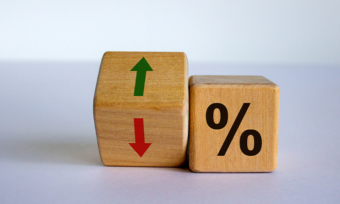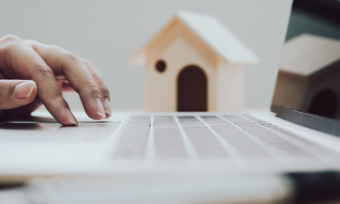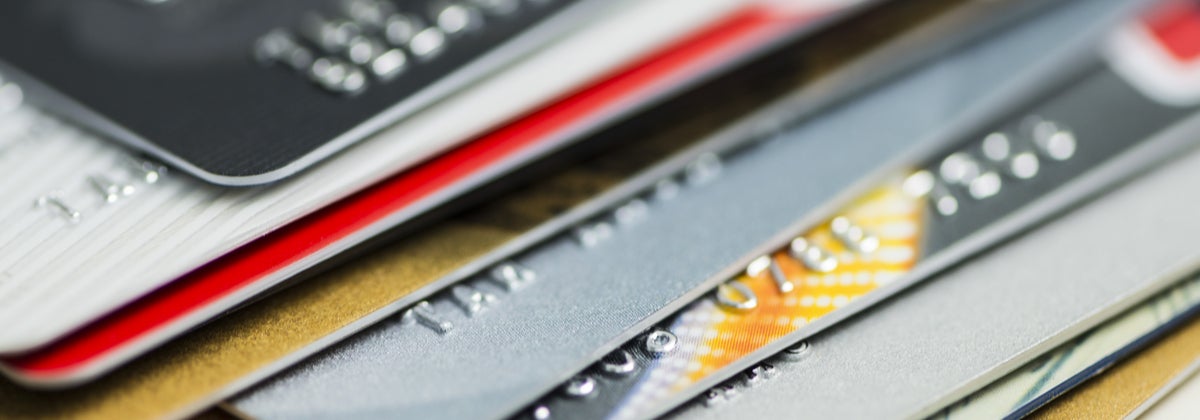When applying for a personal loan or mortgage, your potential lender will run a credit check. This involves a full credit report, including a credit score. How high this credit score is could determine whether your loan is accepted, and how generous your lender is with the interest rates on offer.
So, what is a credit score and, more importantly, what is a good credit score?
What is a credit score?
A credit score is a number between 0 and 1000 that indicates how credit-worthy you are. How credit-worthy you are is decided based on your credit history, which is detailed in your credit report. Have you paid all your bills on time? Have you gotten out lots of loans in the past, and did you miss any of the repayments?
All of these things go onto your credit report and impact your credit score. And, in turn, your credit score impacts your borrowing power. If your score is high, your custom will be more readily accepted by banks, telcos, lenders and even insurance companies. If your score is low, you could find your application being rejected, or if it’s accepted you will pay higher interest rates.
Searching for the Best Personal Loan?
The table below displays some of our referral partners’ unsecured personal loan products for a three-year loan of $10,000 in Auckland (some may have links to lenders’ websites). The products are sorted by Star Rating (highest to lowest) followed by company name (alphabetical). Use Canstar’s personal loan comparison selector to view a wider range of products on Canstar’s database. Canstar may earn a fee for referrals.
What’s a good credit score?
There isn’t a set number that constitutes a universal good credit score. And each of New Zealand’s three credit reporting bureaus (Ilion, Equifax, Centrix) has its own scale. However, a general rule of thumb is that in New Zealand, anywhere from about 600-700 is average. In fact, as of March this year, the average credit score nationwide was 649. So, anything above this is good.
It’s also important to note that, when it comes to credit scores, average is actually pretty decent. An average score will usually mean you haven’t had any serious blips in your financial past. And while your score could be better, you shouldn’t face any serious difficulties obtaining credit.
How can I check my credit score?
Checking your credit score is easy, and can be done online, by ordering a credit report. It’s free to check, but it may take a few days for you to receive the report. If you want to get it in a hurry, you can pay for an express service.
There are three credit reporting bureaus in New Zealand, and you are entitled to get a free copy of your credit report from each of them.
Does everyone have a credit score?
Just about. If you’ve ever gotten a loan, or rented, or had your name on a power or telco account, then chances are you will have a credit score. So, naturally, those under 18 will be less likely to have a credit score.
How can I improve my credit score?
The main thing that impacts your credit score is not paying your bills. This could be rent, power bills, or personal loan repayments. Even missed Afterpay payments can hurt your credit score. But additionally, other things such as frequently applying for personal loans can impact the way a bank or lender will view you. After all, if you’re in constant need of loans, it doesn’t exactly suggest you’re financially responsible.
The best way to improve your score is to simply pay your bills on time and avoid unnecessary loans. This may be easier said than done, and could be a process of revisiting your budget and savings goals to make your outgoing expenses more manageable.
Some suggestions are:
- Pay your bills on time
- Think carefully before applying for any new credit
- Pay down any existing loans and debts
- Consider seeking the assistance of a financial counsellor
- Check your credit report for any inaccuracies
- Hold onto credit cards you can manage
- Lower the limit on your credit cards
I pay all my bills, but my credit score is still low?
A low credit score isn’t always the result of poor financial history. It can simply be the result of a lack of financial history. If you’re young, never taken out a loan, never used a credit card, and you’re name isn’t on the power account in your shared flat, it may just be there isn’t much for lenders to go on. It may pay to start building your credit score through sensible methods.
For example, if you have the money required for a large purchase, it could be worthwhile making the purchase with a credit card instead. The money you saved on the upfront cost can then be used to pay off the credit card balance in full. So long as it’s before the balance is outstanding (and accrues interest), you will build credit without impacting your finances.
Keep in mind that this takes restraint and financial planning. Many people get credit cards with the intention of paying off the balance in full each month, only to then build debt and miss repayments. While a credit card can improve your credit score if used wisely, it can easily ruin it, too, should you spend more than you can afford.
How long does it take for my score to improve?
It’s not a quick fix. And there is no simple answer. If you have years of missed payments and credit card debt, then a few months of sensible spending won’t be of much help. So, the longer, the better.
However, do know that data is only held on your credit file for a certain amount of time, something that is decided by privacy laws in NZ. So, a default 10 years ago (for example) likely won’t affect your credit rating today.
But know that significant negative events, like defaults on payments, can impact your score for up to five years. A past credit problem can become less relevant to your credit score as time passes, particularly as recent payment patterns become more relevant. The impact of past defaults will diminish when countered with a subsequent uplift in behaviour.
So, if you can show that over the past year or two you’ve consistently met all your repayments and outgoing costs, then your missed bills of the past will be less relevant.
I have a bad credit score, can I still get a loan?
Yes, you can. But, you may be limited. Lenders will be less flexible with your repayment options and will offer higher interest rates to factor in the added risk. Depending on how bad your credit score is, and the reason for the bad score, you may not be eligible for certain lenders. Rather, you may have to turn to lenders that specialise in offering loans to those with lower scores.
If possible, it pays to try to build your score up before going for a large loan, such as a mortgage. This way you’ll be able to secure better lending options.
→ Related article: Best Personal Loans for Bad Credit Scores
Searching for the Cheapest Personal Loan?
If you’re looking for the cheapest personal loan, Canstar’s personal loan comparison tables can help. The table below displays the sponsored unsecured personal loan products available on Canstar’s database for a three-year loan of $10,000 in Auckland, with links to lenders’ websites. Use Canstar’s personal loan comparison selector to view a wider range of products on Canstar’s database. Canstar may earn a fee for referrals.
Compare personal loans with Canstar

About the author of this page
This report was written by Canstar Content Producer, Andrew Broadley. Andrew is an experienced writer with a wide range of industry experience. Starting out, he cut his teeth working as a writer for print and online magazines, and he has worked in both journalism and editorial roles. His content has covered lifestyle and culture, marketing and, more recently, finance for Canstar.
Enjoy reading this article?
You can like us on Facebook and get social, or sign up to receive more news like this straight to your inbox.
By subscribing you agree to the Canstar Privacy Policy




Share this article